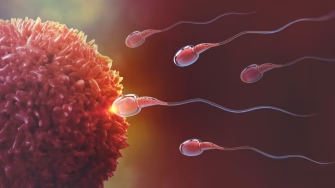Don't miss our updates



In vitro fertilization, or IVF, is one of the most advanced and reliable options today. It is designed to support those who have had difficulty conceiving naturally and has become the hope for many couples and single individuals around the world. What is in vitro fertilization (IVF) and how does it work? According to the Complete IVF Guide, this treatment is carried out in several stages: Ovarian stimulation: daily injections of FSH and LH to develop multiple follicles. Egg retrieval: ultrasound-guided transvaginal aspiration under light sedation. Fertilization and culture: combining 1–2 × 10⁶ sperm/ml with oocytes in an incubator at 37 °C and 5 % CO₂. Embryo transfer: placing 1–2 embryos in the uterus using a soft catheter under ultrasound guidance. Avoid self-medicating. Always consult an assisted reproduction specialist before starting any treatment. When to consider IVF? You may consider IVF if you have: Damage or blockage in the fallopian tubes. Ovulation problems despite medication. Male factor: sperm count < 15 × 10⁶/ml or motility < 40 %. Endometriosis stage III–IV. Unexplained infertility after basic evaluations. Benefits and success rates In women under 35, the live birth rate per cycle is around 40–50 %. Additionally: Possibility of preimplantation genetic testing to avoid anomalies. Control over the timing and number of embryos to transfer. Options for female couples with sperm donation—see IVF for female couples. Risks and considerations Although it is a safe technique, you should be aware of: Ovarian hyperstimulation syndrome (OHSS): possible ovarian swelling and fluid imbalance. Multiple pregnancy: risk if multiple embryos are transferred. Mild complications: bleeding or infection during egg retrieval. IVF does not guarantee pregnancy on the first attempt; several cycles may be necessary. Talk to your doctor to clarify doubts and minimize risks. Frequently Asked Questions Duration of the IVF process The complete cycle lasts 4–6 weeks: days 2–3 for hormonal tests and ultrasound; 8–14 days of ovarian stimulation with monitoring every 2–3 days; egg retrieval 36 h after the “trigger” injection and embryo transfer at 3–5 days. Two weeks later you confirm with a pregnancy test. Lifestyle to improve outcomes A diet rich in antioxidants, whole grains, lean proteins, and omega-3; ideal BMI 18.5–24.9 kg/m²; daily moderate exercise; avoid tobacco and alcohol; manage stress with mindfulness or therapy. Number of embryos to transfer Single embryo transfer (SET) is recommended under 35 years to minimize twin risks. Over 35 or after failed cycles, two may be transferred. Each case is unique; consult your specialist. Activities after transfer Most resume light activities and work within 24 h. Avoid intense exercise and heavy lifting for a week. Follow your clinic’s instructions and continue progesterone until the pregnancy test. References American Society for Reproductive Medicine. (2022). In vitro fertilization. https://doi.org/10.1093/ajog/95.1.56 National Library of Medicine. (2023). IVF: In vitro fertilization. MedlinePlus. https://medlineplus.gov/ivf.html Practice Committee ASRM. (2021). Ovarian stimulation for ART. Fertility and Sterility, 115(3), 516-525. https://doi.org/10.1016/j.fertnstert.2020.11.035 ESHRE. (2020). Guidelines on embryo transfer. Human Reproduction, 35(5), 1001-1014. https://doi.org/10.1093/humrep/deaa045 This journey can be emotional and filled with expectations. You are not alone: your desire to become a parent matters. Consulting an IVF specialist will help you resolve questions and map out the best plan for you.